What did Winston Churchill once say about Russia?
Well, it’s a riddle, wrapped in a mystery, inside an enigma.
If you need a visual representation of this, just look at the Russian matryoshka doll.
Beautifully crafted, each matryoshka set is made up of individual wooden figures. They steadily decrease in size, nesting snugly inside each other. Over and over again. Layers upon layers.
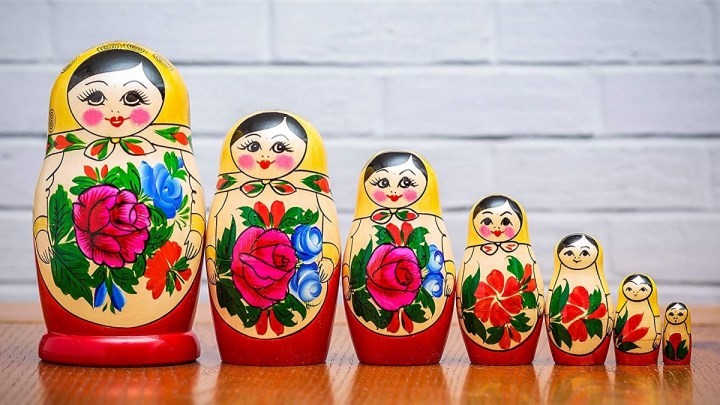
Source: Yoair Blog
The matryoshka doll is a symbol of russkaya dusha — the Russian soul.
This is fitting, especially when you consider that while most Russians appear stereotypically ‘white’ and ‘European’, the truth is that their cultural outlook is much more complex.
What they practise is a ‘high-context culture’, as opposed to the ‘low-context culture’ that we’re used to in the West.
Here’s a simplified explanation of what this means:
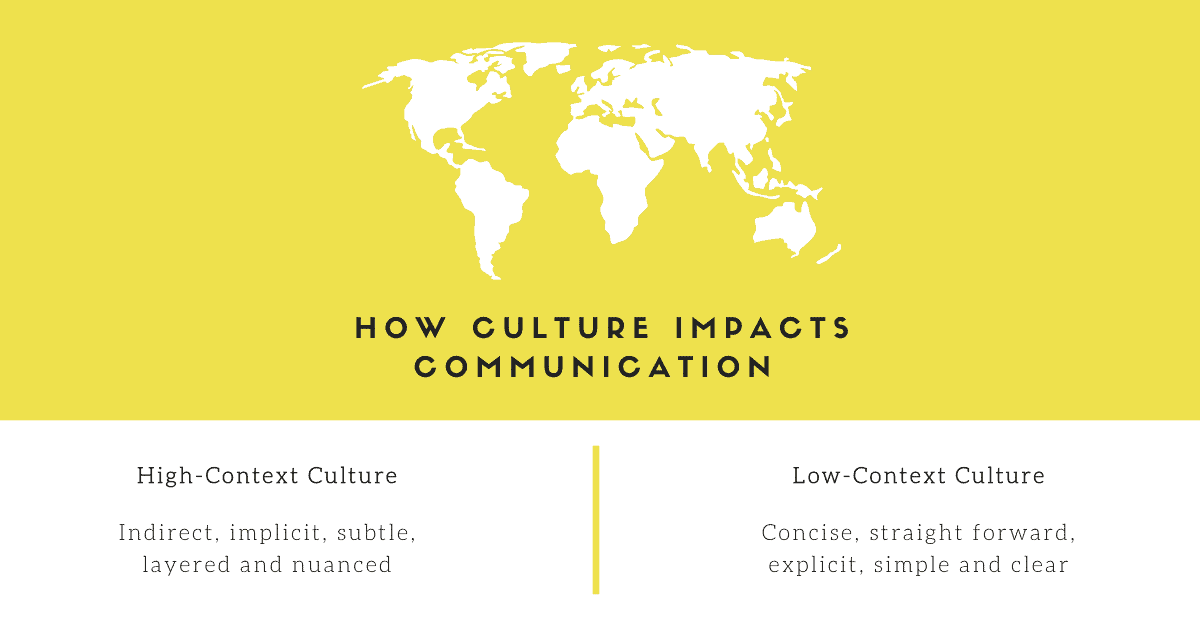
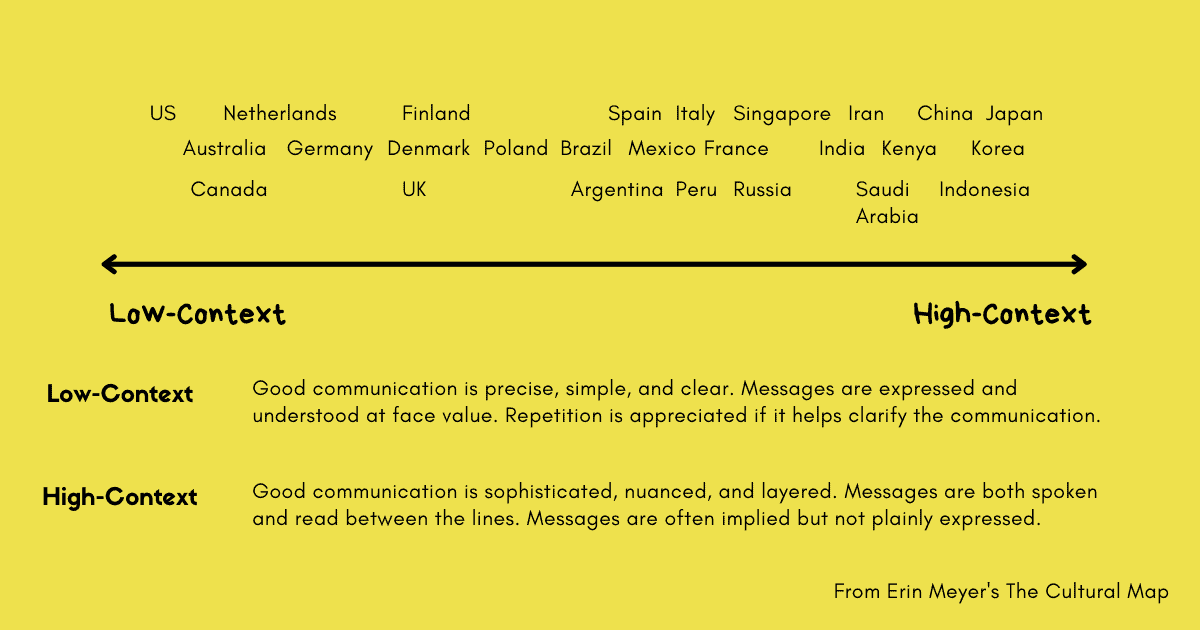
Source: Tech Tello
Three phrases are critical here:
- Nuanced.
- Layered.
- Read between the lines.
Indeed, with Russia, what you see is not necessarily what you will get. And what is left unsaid may actually be more powerful than what is expressed out loud.
Putin’s game
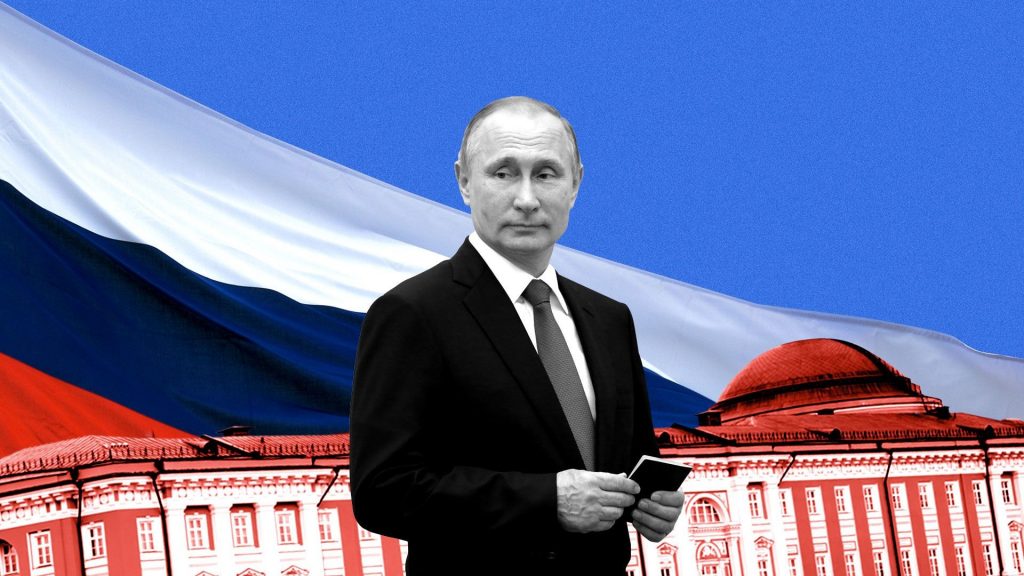
Source: Axios
Throughout January and February 2022, much of the commentary in the Western media appeared to be driven by two questions:
- Will he…?
- Won’t he…?
At that point, many people doubted that Vladimir Putin would actually launch a full-scale invasion of Ukraine.
It seemed too drastic. Too severe. Too extreme.
Of course, American and British intelligence were warning that an attack was a near-certainty. However, for people with anti-establishment leanings, it was easy enough for them to be dismissive and sarcastic: ‘Oh, the same CIA and MI6 spooks who said there were weapons of mass destruction in Iraq? Those globalists with an agenda? Ha! I’m not believing it this time.’
Uh-huh. Yep.
Despite the heavy Russian military build-up on the border, there was an element of denial among sceptics. Depending on who you asked, what Putin was doing was either a routine military exercise or harmless political posturing.
Nonetheless, here’s how The Guardian reported on the events transpiring on February 14th:
At stake is a potentially devastating conflict, sanctions and economic hardship, and a verdict on the legacy of Putin, who has broadcast his decision to engage in brinksmanship with the west, saying that the tensions have a “definite effect” and should be maintained “as long as possible”.
Putin has been clear about what he wants: to reverse Nato expansion in Europe and a pledge that Ukraine will never join the alliance. But the main question remains how far he is willing to go to achieve that goal. And if he does de-escalate, does he have anything concrete to show for the last year?
In an unusual bit of play-acting on Monday, Putin invited his foreign minister, Sergei Lavrov, and defence minister, Sergei Shoigu, to the Kremlin for carefully scripted discussions on how it was all going.
“Sergei Viktorovich, what do you think? In your opinion, is there a chance to reach an agreement with our partners on the key questions causing our concerns?” Putin asked in a televised discussion that set the stage for the Kremlin’s next steps.
“We have said more than once that we warn against endless conversations on issues that need to be resolved today,” said Lavrov, repeating a warning that Russia would not be filibustered. “But still, probably as the foreign minister, I should say that there is always a chance.” He told Putin to continue holding talks with the west.
Indeed, Putin’s lack of a definitive answer on whether he would invade Ukraine was enigmatic, if not frustrating.
Yes, he did issue demands through the usual diplomatic channels — but in regards to an actual commitment to war, he appeared to be quite vague. Maybe even mischievous.
Now, on February 21st, here’s a comment from a sceptical Wealth Morning reader that arrived in my inbox:
‘Never been to Russia, have we? Putin has constantly consistently stated over and over again that Russia has no intention of invading Ukraine. This is extensively documented. Try using sources such as RT (Russia Today) instead of the global corporate MSM political bias. Follow the money as to who is really raising this hysteria of war. Who would benefit the most?’
On February 24th, Russia went on to invade Ukraine.
Shocking? Yes.
But surprising? Maybe not.
Putin, a former spymaster in the KGB, understands the power of myth-making all too well.
You have to remember: this is a guy who had the misfortune of starting his espionage career just as the curtain was drawing to a close on the Soviet Union.
Putin was the equivalent of a straight-A student who thought he was going to go to an Ivy League university — only to discover that he never even got an acceptance letter. Or, perhaps, someone expecting a Big Mac but only getting three measly French fries.
So, in the post-Cold War era, it can be argued that Putin’s political ascension in the Kremlin has been fuelled by nostalgia.
Nostalgia for what could have been.
Nostalgia for what should have been.
It’s no secret: the Russian economy today is a shadow of its former self. It’s smaller than the economy of New York or Texas.
But Putin does have one ace card up his sleeve. Russia is a land that’s rich with resources. It has historically served as a major supplier of natural gas to Europe. And it is also a major exporter of precious metals, grain, and fertiliser to the rest of the world.
So, as commodity prices surge, we are all feeling the pain.
This gives Putin the chance to be as ambiguous as he wants to be. He can play hardball with his adversaries — and yet his authoritarian voice need not rise above a whisper.
After all, what is implicit is much more consequential than the explicit, isn’t it?
The great Russian novelist, Fyodor Dostoevsky, once wrote about the mental drive of his countrymen like this:
It’s frightening how free a Russian man’s spirit is, how strong is his will! No one has ever been so much torn away from his native soil, as he sometimes had to be; nobody ever took a turn so sharp, as he, following his own belief!
Of course, Dostoevsky was talking about the ‘Russian man’ in a plural sense.
But he might as well be talking singularly about Putin.
How should investors react?
Watch the markets for a while, and you’ll notice something quite predictable.
- When markets climb, they do so like a staircase.
- When markets fall, they do so like an elevator.
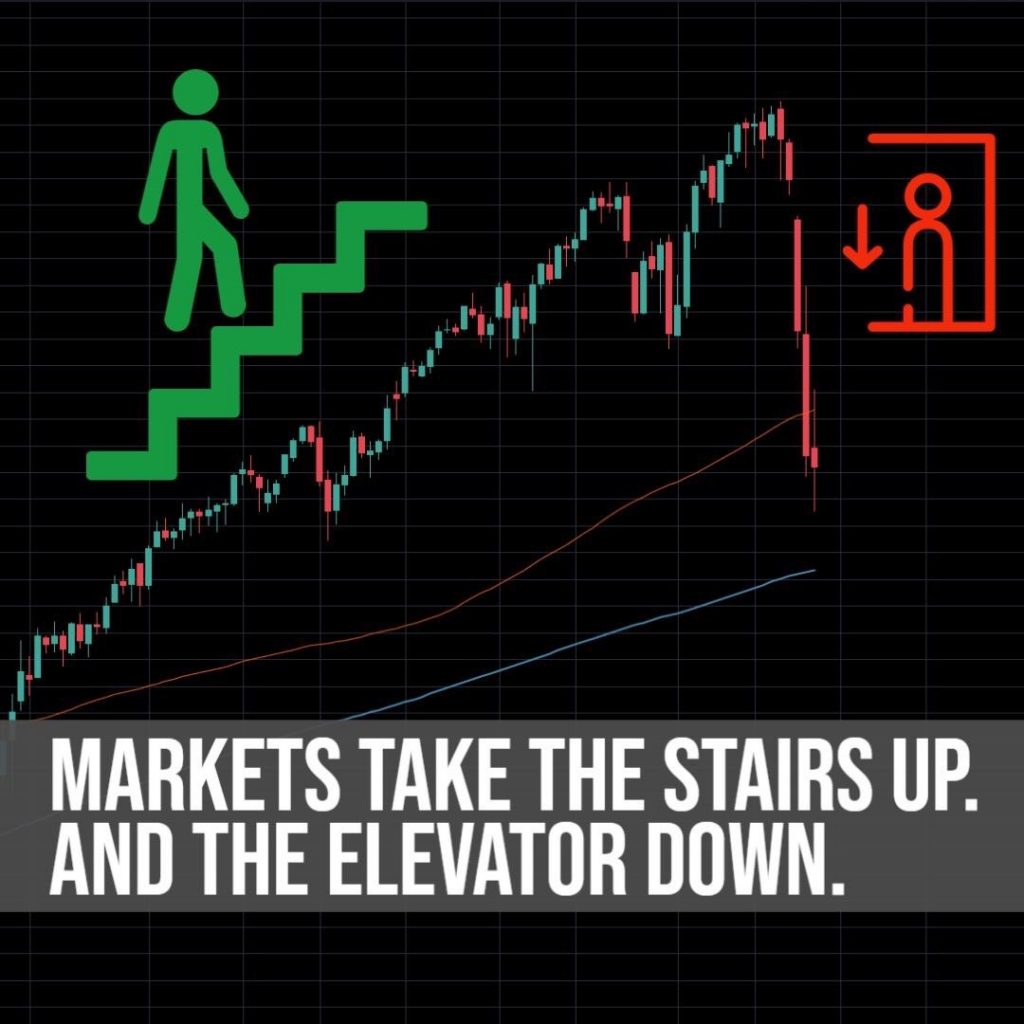
Source: Twitter
It’s human nature, isn’t it?
Investors hate uncertainty. So whenever they hear something uncomfortable, they tend to obsess about it. Amplify it. And a kneejerk reaction follows.
This is why we experience elevator-style falls in the market.
However, if you are a value investor, an exaggerated fear event like this is not to be shunned. It is to be welcomed. After all, this could be a rare chance to grab a bargain in an otherwise expensive market.
Statistically, what is known as a fat-tail risk event happens only 20% of the time.
And the other 80% of the time? Well, the market rises.
Indeed, the staircase effect is stronger than the elevator effect over the longer term:
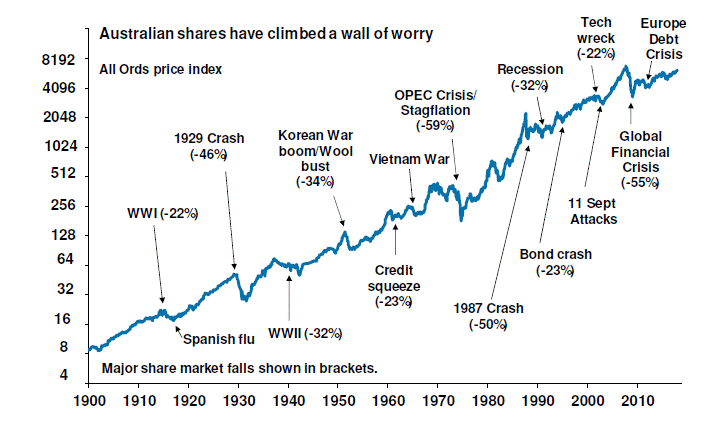
Source: AMP Capital
For our Eligible and Wholesale clients, we run what may be the only active night-trading desk in New Zealand. Every week, we aim to buy into exceptional companies in the USA, the UK, Australia, and more.
We can be counter-cyclical and go against the grain by buying when the market is jittery. This allows us to capture a range of golden opportunities in property, infrastructure, energy, banking, and food.
Are you looking to protect your wealth? Grow your wealth? Secure passive income?
Well, maybe it’s time to look beyond Putin’s enigma…and talk to us instead.
⚡ Click here to express your interest in a FREE Vistafolio consultation now
Regards,
John Ling
Analyst, Wealth Morning
(This article is general in nature and should not be construed as any financial or investment advice. To obtain guidance for your specific situation, please seek independent financial advice.)





John is the Chief Investment Officer at Wealth Morning. His responsibilities include trading, client service, and compliance. He is an experienced investor and portfolio manager, trading both on his own account and assisting with high net-worth clients. In addition to contributing financial and geopolitical articles to this site, John is a bestselling author in his own right. His international thrillers have appeared on the USA Today and Amazon bestseller lists.